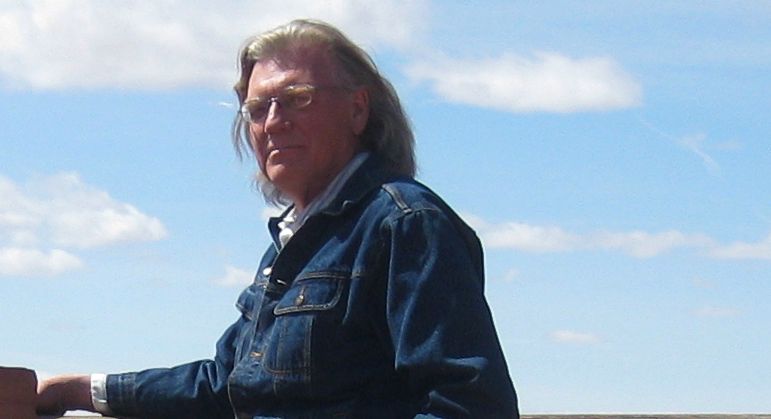Some information may be outdated.
There is anxiety in almost every conversation these days, especially among Moab’s service workers who are out there on the front lines, risking their lives for us – though we tend to take that for granted, almost as if it’s something we’re entitled to. Funny how eager we are to say “Thank you for your service!” to those risking their lives among the far-away opium poppies of Afghanistan, but so hesitant to do so for the high school girl who bags our groceries at City Market.
For some, a soothing salve for this anxiety is found in the black humor of late-night comedy shows now specializing in savagely skewering the endless folly of politicians and business leaders. Certainly, there is no lack of fodder for this in the current historical situation. And for depression, a daily dose of raucous laughter is almost as good as Prozac. But when the giggling is through, the anxiety returns.
It almost seems as if our society is completely adrift, bobbing randomly on unexpected waves. Where are the moral compasses? The ones found in sacred texts? Indeed, the late-night comedians know that the widening gap between where the compass indicator points and the direction we’re taking is where the most potent sparks of levity are generated.
Either the old moral compasses are failing us or, like the current rapidly fluctuating state of the earth’s magnetic pole, the classical field lines of historical magnetism are shifting away from their former pole, dragging in their grip the aura of certainty that used to invest the meanings of words in sacred texts with their authoritative substance.
The magnetism of feminist thinking is one set of historic field lines currently bringing about such a shift. Almost all the religious leaders and philosophers whose writings inject sacred texts with authority have been male. And who can deny that these texts, sacred though they might be, are imbued throughout with a false assumption of inherent male superiority? Thus under the influence of expanding feminist clarity, the historic field lines imbuing the important words with meaning are shifting so rapidly that the old patriarchal compass pointers are spinning like pine needles in a desert flood.
The authority of a sacred text traditionally contains an expert male explanation of the nature of the universe, usually invoking supernatural beings and moral authority. Would a sacred text be a sacred text without this self-assertion of inherent cosmological expertise? And are such criteria uniquely male?
Most sacred texts promise joy in the afterlife if their prescriptions for proper behavior are followed, or that once a given economic system has perfected itself, there will be joy for future generations. But at least joy is part of the equation. A female sacred text would not defer joy any more than she would defer milk for her infant. The divine is designed to give joy! And maybe on that basis, the ultimate female spiritual leader from our Western tradition is to be found hiding in plain sight.
How much unmitigated joy have the six novels of Jane Austen brought to the world in the 200 years since they were written? What standard male book can boast that? And the popularity of these six texts has steadily, even exponentially, increased throughout the modern era. No lightweight entertainment commodities these, there is also something here that speaks to our unspoken depths, layer upon lovely layer of nuance, poetry and meaning. Her moral compass is not established through its emplacement in a philosophical system but in the constant, dynamic illustration of realistic actions and consequences as her characters make their way through the diamond-bright light of her unmatched prose.
Ah, but where is the morality? It is everywhere and nowhere and is best summed up by Fanny Price in Mansfield Park: “We have all a better guide in ourselves, if we would attend to it, than any other person can be.”
My inner guide, my Jane Austen moral compass if you will, would certainly not hesitate one second to shout out a heartfelt, “thank you for your service!” to that high school girl bagging my groceries.
Gary Cox, recently retired, worked for 34 years as a year-round Backcountry Ranger in the Maze District of Canyonlands National Park. He now lives in Moab and is pursuing a writing career. His first novel, Glass Towers and Goats, has just been published.
Appreciate the coverage? Help keep local news alive.
Chip in to support the Moab Sun News.



